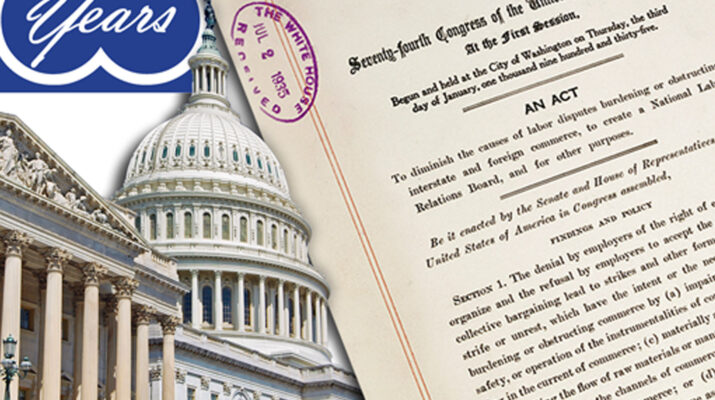European Community Acts and Regulations, as well as European Court of Justice judgements, are applied directly in the Italian legal system.
Contract of employment
The following are the primary categories of special employment contracts: apprenticeships, part-time, solidarity contracts (intended to help maintain employment during times of economic difficulty), “work-training” contracts, fixed-term contracts, domestic work, building maintenance work, work with temporary agencies, and contracts for managers (dirigenti).
Under Section 2110 of the Civil Code, suspension of the employment contract is permitted in cases of a work-related illness, accident, or maternity (two months before and three months after childbirth). In these situations, the employee is entitled to a social insurance benefit (paid in advance by the employer) that accounts for approximately 2/3 of the salary; collective agreements frequently call for the employer to cover the remaining 1/3.
Fixed-term contracts automatically terminate at the end of the set time period or after the completion of the defined task (Act 230 of 1962). However, the employer has the right to end the agreement sooner with “good cause” (Sect. 2119, Civil Code). Termination without grounds is limited to trial periods, domestic workers, employees who have reached retirement age and directors.
Severance payment
The employee is entitled to receive from the employer a severance payment (trattamento di fine rapporto), which is considered to be a part of salary and is set aside annually and kept by the employer (for whom it is an important source of self-financing), based on the formula of 7,5% of every year’s salary plus revaluation in accordance with a composed index of cost of living increases.
Hours of work
The old Act No.692 of March 1923, which is still in part effect today, stated that employees should not work more than eight hours per day or forty hours per week (later changed to forty by Act No. 196/1997, Sect. 13).
All of these restrictions apply to actual working time. The rating of waiting times and surveillance tasks may differ. It goes without saying that domestic legislation must take into account the self-executing restrictions of EEC Directive No. 14/93 (and, soon, EEC Directive No. 34/2000). The typical weekly working time is determined by collective agreements (never more than 40 hours).
Working time is normally established by the employer, within the limitations cited above, and can be changed.
Paid leave
According to Constitutional Article 36, every worker has the right to a weekly day of rest, typically a Sunday (Sect. 2109 Civil Code ).
Act 370/1934, which addresses this issue, states that only specific activities may change the 24-hour weekly rest period ( article 5). Workers are entitled to a rest period as compensation.
Four national holidays and other holidays are recognized by Acts 260/1949 and 90/1954. Workers continue to receive regular pay during these festive days. If they must work due to technical issues, they are paid twice as much as usual plus an additional bonus (roughly 50% of normal pay).
Every employee is entitled to annual paid leave (art. 36 of the Constitution). For domestic workers solely, the Civil Code stipulates a statutory minimum leave of eight days. Collective agreements, which typically call for paid annual leave of at least four weeks per year, set the minimum leave requirements for all other employees. Some contracts call for increased vacation time based on seniority. Employees are paid normally while on vacation, with the exception of only indemnities related to the employment itself. The ILO Holidays with Pay Convention (Revised), 1970 (No. 132), which calls for a minimum leave of at least three working weeks for each year of service, has been ratified by Italy. In theory, the employee gets to decide when they take their vacation. However, if the employee’s chosen dates don’t work with the needs of the company, the employer may choose a different time for them to take their vacation.
Minimum age and protection of young workers
The Constitution’s Article 37, Second Paragraph, mandates that Statutory Law determine the minimum age.
At the conclusion of compulsory schooling, a person must be at least 15 years old to be employed, according to Act 345/99, which implements EC Directive No. 33/1994. ( ILO Minimum Age Convention, 1973 no. 138).
The age of civil capacity (established by Act No. 39/1975 at 18 years) and the ability to enter into a labor contract are related. However, if the employment minimum is lower, a minor may also exercise rights and take actions arising from a labor connection (Sect. 2 of Civil Code).
Acts No. 977 of 1967 and No. 345 of 1999 introduced a special regulation to protect the work of minors, including special medical certificates guaranteeing their physical fitness for work, recurring medical examinations, time restrictions on working shifts, prohibitions on working at night, and other measures.
The ILO Worst Forms of Child Labor Convention, 1999 (no. 182) and its requirements to combat child exploitation are addressed by Act No. 148/2000. Additionally, it takes cues from ILO Recommendation No. 190/1999, which adds to the aforementioned Convention.
BIMAS upholds the National Labor Law while advocating for laborers’ rights.




